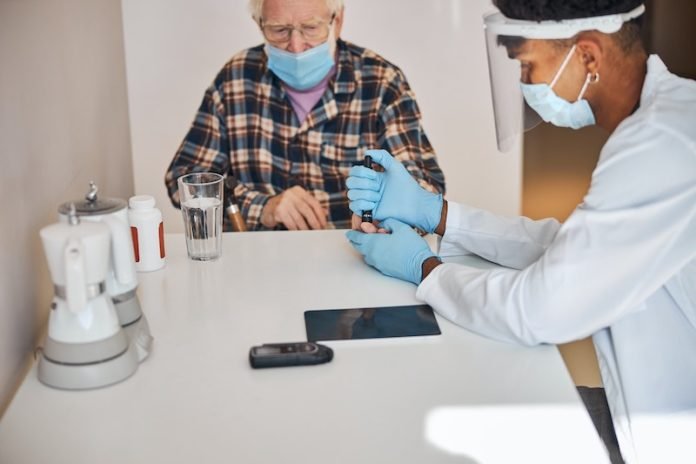
Scientists have found a new way to predict if a person is likely to get type 2 diabetes. They studied changes in our DNA, called DNA methylation.
This can help them know if a person might get diabetes in the next ten years, even before any signs of the disease show up.
The Big Study
Scientists from many universities, including the University of Edinburgh and the University of Helsinki, worked together on this study. They used information from about 15,000 people.
Their research can help us prevent diabetes earlier, which would make a big difference to people’s health and how much money we spend on treating this disease.
DNA Methylation and Diabetes Risk
Right now, when doctors want to know if someone might get diabetes, they look at things like their age, if they’re a man or a woman, how much they weigh, and if their family has a history of diabetes.
In this study, the scientists found that adding DNA methylation information made their predictions even more accurate.
Methylation is when a small thing called a methyl group sticks to our DNA. The adding or taking away of these groups can change how some parts of our bodies work. These changes can show us how a person is aging and if they’re likely to get a disease.
The Experiment and Findings
To see how well this worked, the scientists pretended to screen 10,000 people for diabetes risk, where one in three would get the disease in the next ten years.
The method that used DNA methylation did better, correctly identifying an extra 449 people who would get the disease compared to just using the usual risk factors.
The Importance of the Research
The information for this study came from a big project called the Generation Scotland study, with 14,613 volunteers.
The team tested their method again with data from a German study, to make sure their results worked for different people.
This research is very important because a lot of people have diabetes. In the U.K., almost 5 million people live with diabetes, and 90% of them have type 2 diabetes.
This type of diabetes can cause a person’s blood sugar to get too high, leading to heart diseases, stroke, nerve damage, and problems with their feet.
Looking Ahead
The lead scientists of the study, Yipeng Cheng, a Ph.D. student, and Professor Riccardo Marioni, both from the University of Edinburgh, think this method could work for other diseases too.
They are very thankful to all the people who volunteer for their studies, because the more people they study, the better they can find ways to prevent or delay diseases as we age.
If you care about diabetes, please read studies that pomace olive oil could help lower blood cholesterol, and honey could help control blood sugar.
For more information about diabetes, please see recent studies about Vitamin D that may reduce dangerous complications in diabetes and results showing plant-based protein foods may help reverse type 2 diabetes.
The study was published in Nature Aging.
Copyright © 2023 Knowridge Science Report. All rights reserved.




